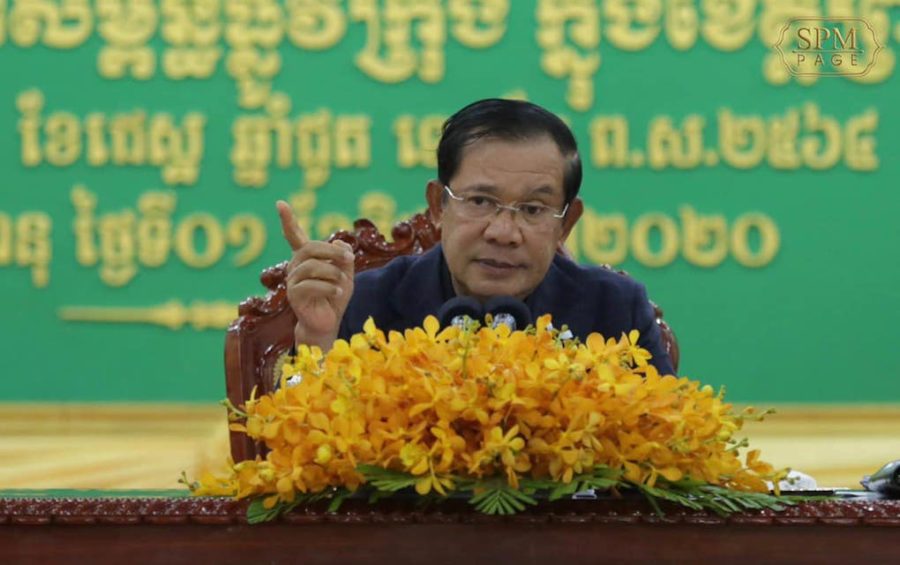A sub-decree signed by Prime Minister Hun Sen grants forest land in Preah Sihanouk province to his children Hun Mana and Hun Maly as well as the mother-in-law of his eldest son Hun Manet.
According to the decree, 44 hectares of former forest in Prey Nob district will be transferred to seven people, all connected to the government.
The land was converted to state private land in 2002, and would now be given to the people “who obviously occupy” it, the decree says.
Mok Poponnrith, Manet’s mother-in-law; Labor Ministry under-secretary of state Pok Pann and his wife Chhay Nay; National Police bodyguard unit head Chum Savuth and his wife Nhim Yunsrim; and Mana and Maly are the recipients.
Government spokesperson Phay Siphan said that generally those who receive plots in this way must already be using the site.
“It does not matter who they are — their relations or family or kin — and the allocation is to match the obvious occupation or use at the location,” Siphan said.
“This is a surprise, and the ministries who are involved must explain to the public clearly how they are obviously occupying it or there is a swap of one place with another — we do not know.”
Environmental concerns should be directed to the Environment Ministry, while the land grants were the responsibility of the Land Management Ministry, he said.
Agriculture Minister Veng Sakhon also said questions should go to the Land Management Ministry, “because he prepared the sub-decree request to Samdech directly.”
A Land Management Ministry spokesperson and Land Management Minister Chea Sophara declined to comment.
Bit Traing commune chief Meach Chan said the land in question had once been farmed for bananas, cashews and acacia, but it had since been cleared, fenced and put under the watch of security guards.
“They recruited people to look after their land,” Chan said. Manet’s mother-in-law Poponnrith also had 100 hectares in another village in his commune, he said.
Most of the land in the commune remains forest, but clear occupants can request ownership, he said.
“We do not consider whether the applicant is a big or small person — it is up to the request,” he said.
Transparency International Cambodia executive director Pech Pisey, however, said the government should be clearer about whether there is a land swap involved, whether the land grant is in the public interest, and how it would impact the environment and other people’s livelihoods.
“Because we do not have detailed information about the allocation, and we do not know whether before the allocation there was an evaluation of the social and environmental impact in the location or not,” he said.
People will be suspicious about the land transfers because of the lack of information being disseminated, Pisey said.
“When we take a forest or protected area and change it to private property, it will have a huge impact on the environment and socio-economy,” he said.
Hun Sen heads Sihanoukville’s “Master Plan” council to oversee land-use policies and economic development plans for the area.
Additional reporting by Khan Leakhena
Updated at 10 a.m. with connection between Chum Savuth and Nhim Yunsrim.













